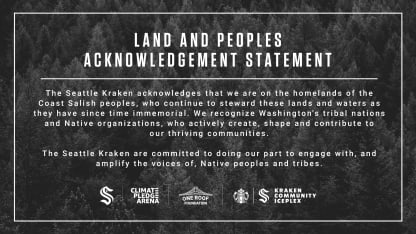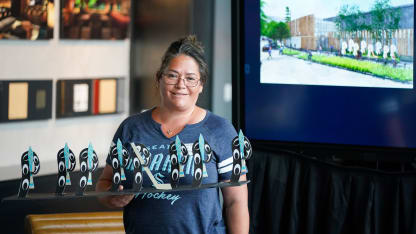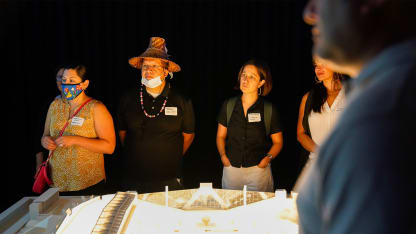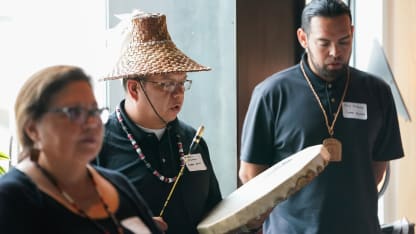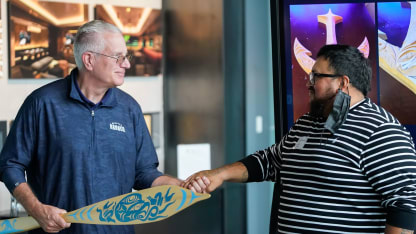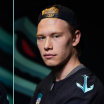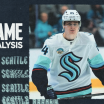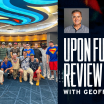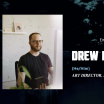In the same space where Kraken General Manager Ron Francis learned via NHL lottery that Seattle would be picking second overall in this summer's amateur draft, leaders from Salish tribes and other Native organizations met recently for a lunch and an inclusive dialogue.
Over frybread tacos, kale salad and quinoa succotash, the main objective of the gathering was to share and receive feedback around various initiatives the Kraken and Climate Pledge Arena have been working on to engage with and amplify the stories and voices of Native peoples.
This August's lunch was itself a follow-up to a similar event two summers ago when team officials including CEO Tod Leiweke and Vice President of Community Engagement and Social Impact Mari Horita invited Native leaders together to brainstorm how the Kraken and Climate Pledge Arena (both unnamed back then) could best support and engage our Native community.
Supporting 'Land and Peoples'
Kraken presents 'Land and Peoples Acknowledgement' statement at gathering of Native leaders, announces commissioned art for Kraken Community Iceplex and Climate Pledge Arena
